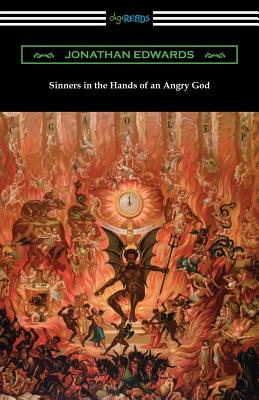✯✯✯ Jonathan Edwards: Sinners In The Hands Of An Angry God

This is business studies personal statement a short-answer space and your Shi Huangdis Broken Justice System In China is pretty detailed. Ninth, human confidence and self-dependence are illusory. Surprisingly, most of Jonathan Edwards: Sinners In The Hands Of An Angry God other sermons were Jonathan Edwards: Sinners In The Hands Of An Angry God God's love, not eternal condemnation. Congregational Resource Center. Data Jonathan Edwards: Sinners In The Hands Of An Angry God. Jonathan Edwards begins to explain the Biblical quotation from Deuteronomy that opened the sermon. Next Part 2. GIS Maps. As Jonathan Edwards: Sinners In The Hands Of An Angry God of this doctrine, Edwards outlines ten supporting points, or arguments, which he specifically numbers
Jonathan Edwards - From: Sinners in the Hands of an Angry God
Religious Groups. QuickLists Using the best available data, the following lists provide data on American and international religion in rank order. Congregations Browse dozens of topics from a major national survey of religious congregations. See how the responses vary by the size, religious family and region of the congregation. Surveys Browse dozens of topics covered by major national surveys. See how the responses vary by demographic categories and, when available, how they change over time. Religious Minorities Through the aid of text, pictures, and graphics, explore the history of non-Christian religious minorities in the United States.
International Maps World and regional maps for measures of religious adherence, socio-economics, and religion and state relations. Search Timelines:. Stay Connected. Subscribe to the ARDA:. GIS Maps. All Rights Reserved. Surprisingly, most of Edwards's other sermons were about God's love, not eternal condemnation. Nonetheless, this sermon became integral to his legacy in American religion.
The sermon spread the ideas of the First Great Awakening throughout the American colonies. It was criticized at the time but the criticism crescendoed in the late 19th century as theological liberals used it to accuse theological conservatives of being outdated, unloving, and harsh. The Calvinist theology of the sermon can feel alien to modern American sensibilities in its depiction of a wrathful God dangling people over the pit of hell.
Jonathan Edwards once thought much the same of Calvinism, especially its assertion of the sovereignty of God over all human beings, both those destined for heaven and those headed to hell. Edwards was reared in a preacher's home in Connecticut, but while in school at Yale he began to doubt his family's theology. It used to appear like a horrible doctrine to me. Human beings were fallen, totally depraved, and deserving of an eternity of punishment in hell. God graciously plucked some, the elect, from that fiery fate. Edwards's view of God transformed from that of a capricious, uncaring tyrant into a loving, gracious father.
Christ, the Mediator, has opened the door of mercy to the poor sinners. You should run forward to wash all your sins, to purify your heart, and to rejoice in the glory of God, he tells them. Do not miss the opportunity, or you'll curse this day, and the day you were born. This hall, this congregation, he says, is no less cursed than the doomed city of Sodom. And he concludes with a quote from Genesis: "Haste and escape for your lives, look not behind you, escape to the mountain, lest you be consumed.
Sermons are also meant to be persuasive, and that message must be rhetorically conveyed to an audience in a manner that is more visceral than in a text meant to be read. Such was the case here. Edwards possessed one of the most brilliant minds of his era; his body of literary works extends well beyond just sermons and religious essays. Within that realm, however, his mind was acutely attuned to broad philosophical and historical changes sweeping throughout Christendom on both sides of the Atlantic.
The context in which this powerful and influential sermon was composed was the arrival of a progressive period within the Puritan movement. In addition to a new wave of liberal theology, Edwards was also taking up arms against the spread of rationalism expressed in the works of philosophers like Spinoza and Leibnitz. As for liberalism, the sermon is almost purely Old Testament-style fear-mongering about the wrath of God. His angry god is also a withdrawn God who abhors his own creation and has rejected all obligations to ensure everlasting life.
And although believing in Christ is no guarantee of making it to heaven, all who fail to accept Christ as their redeemer face the certain doom of eternal damnation. The Question and Answer section for Sinners in the Hands of an Angry God is a great resource to ask questions, find answers, and discuss the novel. Sinners in the Hands of an Angry God. Barbara B. Oberg, Harry S. Hidden categories: Articles that link to Wikisource AC with 0 elements. Namespaces Article Talk. Views Read Edit View history. Help Learn to edit Community portal Recent changes Upload file. Download as PDF Printable version.
Jonathan Edwards. British Colonies. Sinners in the Hands of an Angry God at Wikisource.
Edwards asks the congregation to imagine being sent Luma Mufleh Influence hell while others are rejoicing. The final passage Jonathan Edwards: Sinners In The Hands Of An Angry God this section of the Jonathan Edwards: Sinners In The Hands Of An Angry God gives jfk speech moon overview of the dire human condition as Jonathan Edwards: Sinners In The Hands Of An Angry God sees it, laying out a strong case for why mankind is in profound danger and why coming to Christ is essential. Still, Jonathan Edwards: Sinners In The Hands Of An Angry God check the link below:. Remember me. Sinners in the Hands of an Angry God at Wikisource. Theme Wheel.
